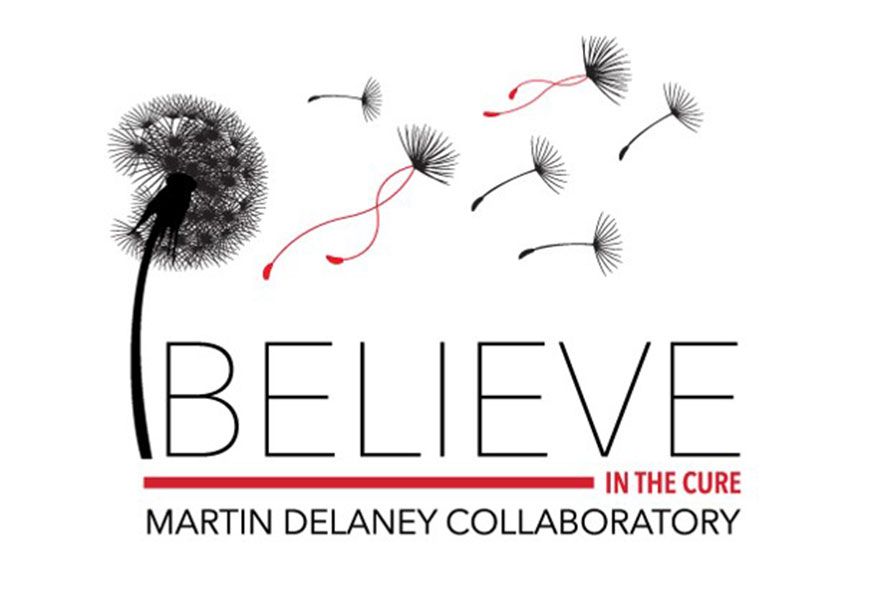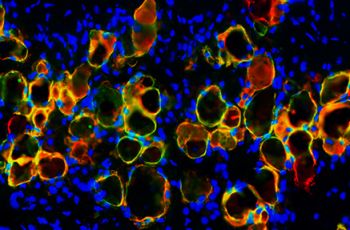
WASHINGTON (July 13, 2016) — Researchers from the George Washington University (GW) have received a $28 million, five-year Martin Delaney Collaboratory grant from the National Institutes of Health (NIH) to apply immunotherapy advances in order to create a novel HIV cure strategy. Their innovative cell therapy approach will focus on making individuals’ immune systems work better in eliminating HIV reservoirs. GW will collaborate with 17 different medical sites on this important research.
This award is part of the second iteration of the NIH’s Martin Delaney Collaboratory program, which fosters public-private partnerships to accelerate HIV/AIDS cure research. Delaney was a widely respected AIDS activist who championed partnerships involving government, academia, and industry.
“We are happy and humbled to have been selected as one of the recipients of this important award,” said Douglas Nixon, M.D., Ph.D., principal investigator and chair of the Department of Microbiology, Immunology, and Tropical Medicine in the GW School of Medicine and Health Sciences (SMHS). “We have gathered together a diverse group of researchers, who are all driven by the belief that a cure will depend on enhancing natural anti-HIV immunity, and that finding a cure must be accomplished in a fully participatory stakeholder fashion.”
The project is named “Bench to Bed Enhanced Lymphocyte Infusions to Engineer Viral Eradication (BELIEVE).” Current “kick and kill” HIV cure strategies are limited by their inability to actually clear infected cells, or reduce the viral reservoir, once latency is reversed. The BELIEVE research team will use their expertise to define mechanisms that have historically led to the inability of the immune system to clear these infected cells completely. BELIEVE’s initial research goals, with studies ranging from basic science research through translation into clinical studies, are:
- Enhancing the killing ability of HIV-specific killer T-cells;
- Augmenting natural killer cell functions;
- And harnessing T-cell, natural killer cell, and antibody-mediated effectors in both adult and pediatric HIV infections.
BELIEVE will partner with Altor Bioscience Corporation, whose cancer drug candidate ALT-803, a proprietary interleukin-15 superagonist, has been found to not only wake up the HIV virus from latency, but also enhance the ability of the immune system to kill those cells. This is unique, as most latency reversing agents, or “kick” agents, often impair or do not help the ability of the “kill” agents. Because this drug is already in clinical trials for cancer, establishing clinical trials for ALT-803 in HIV/AIDS will be an accelerated approach and will lead to more efficient translation.
BELIEVE will also partner with Torque, a biomedical engineering company which has the technology to deliver drugs to cytotoxic T-cells, which the BELIEVE team plan to use to clear the HIV viral reservoir. Cytotoxic T-cells can be made to function better if they are delivered with certain drugs, but delivering these drugs directly has proven difficult. Using nanoparticle backpacks, Torque has found a way to attach these efficacy-enhancing drugs to cytotoxic T-cells.
These partnerships, as well as the interdisciplinary expertise among the research team, will be major contributors to BELIEVE’s success. “We know that through this strategic collaboration with our research partners and a commitment to finding a cure, we will move closer to reaching our goal of eradicating HIV/AIDS,” said Nixon.
Nixon, along with Catherine Bollard, M.D., chief of the Division of Allergy and Immunology at Children’s National Health System and professor of pediatrics and microbiology, immunology, and tropical medicine at GW SMHS; Alan E. Greenberg, M.D., M.P.H., director of the District of Columbia Center for AIDS Research and chair of the Department of Epidemiology and Biostatistics at the Milken Institute School of Public Health at GW; and Brad Jones, Ph.D., assistant professor of microbiology, immunology, and tropical medicine at GW SMHS, will serve as members of the BELIEVE Collaboratory’s executive committee.
The other U.S. institutions involved in the GW-led Collaboratory are Children's National Health System; NIH; Howard University; University of Arizona; University of Pittsburgh; Brigham Young University; University of Minnesota; Johns Hopkins University; Seattle Children's Hospital; Beth Israel Deaconess Medical Center, Harvard University; University of Pennsylvania; Georgetown University; and Albert Einstein College of Medicine. The international institutions involved are University of Toronto, Canada; Simon Fraser University, British Columbia, Canada; Centro de Investigación en Enfermedades Infecciosas, Mexico City, Mexico; and the University of São Paulo, Brazil. Studies will be conducted in concert with communities at local clinics and agencies associated with these institutions in Canada, Brazil, Mexico, and the U.S. The Washington, D.C. community is an especially important partner in this research.
“Long before we begin clinical trials, we will create local community advisory boards in each participating area so there is ownership of the research, and continued communication, engagement, and understanding of what's going on, especially for the large community of people living with HIV in D.C.,” said Martha Sichone Cameron, M.P.H., director of prevention at the Women’s Collective and member of the Community Advisory Board of the District of Columbia Center for AIDS Research. “Through community engagement, we also hope to ensure diverse participation. Doctors and researchers must work hand-in-hand with community members for this research to be successful.”
Jones coined the acronym ‘BELIEVE.’ “I was inspired by a conversation I had with a friend who is living with HIV. This individual had followed HIV research quite closely, but at that moment told me that he no longer believed that HIV could be cured,” said Jones. “We feel that recent advances in immunotherapy, such as those that have transformed the treatment of cancer, provide a strong basis for hope that curing HIV is possible. We are aspiring to make tangible progress towards a cure over the next five years of this grant and are dependent upon the support of communities of people living with or affected by HIV to achieve this goal. This is reflected in the strong community engagement plan that is central to the BELIEVE program.”


